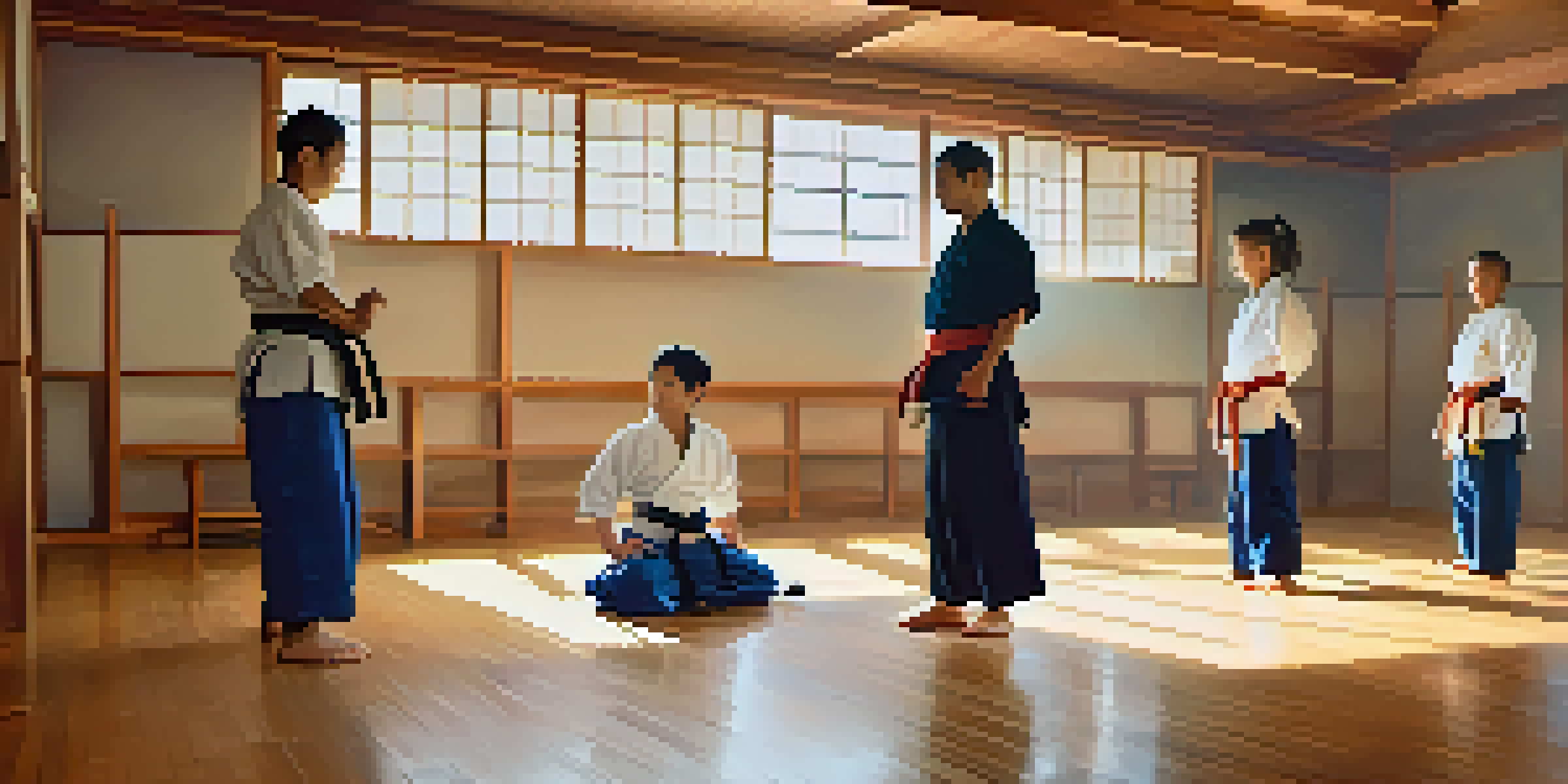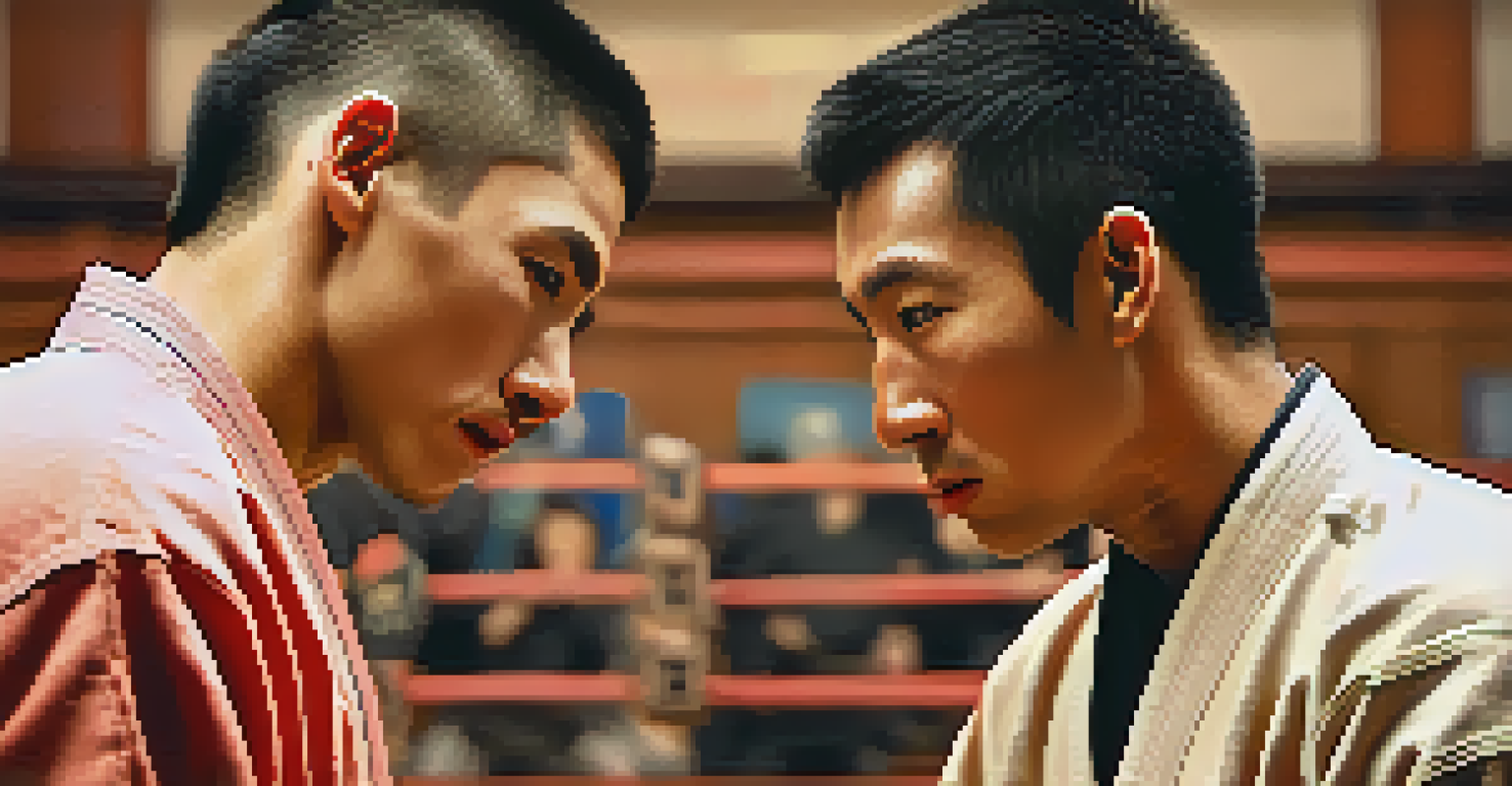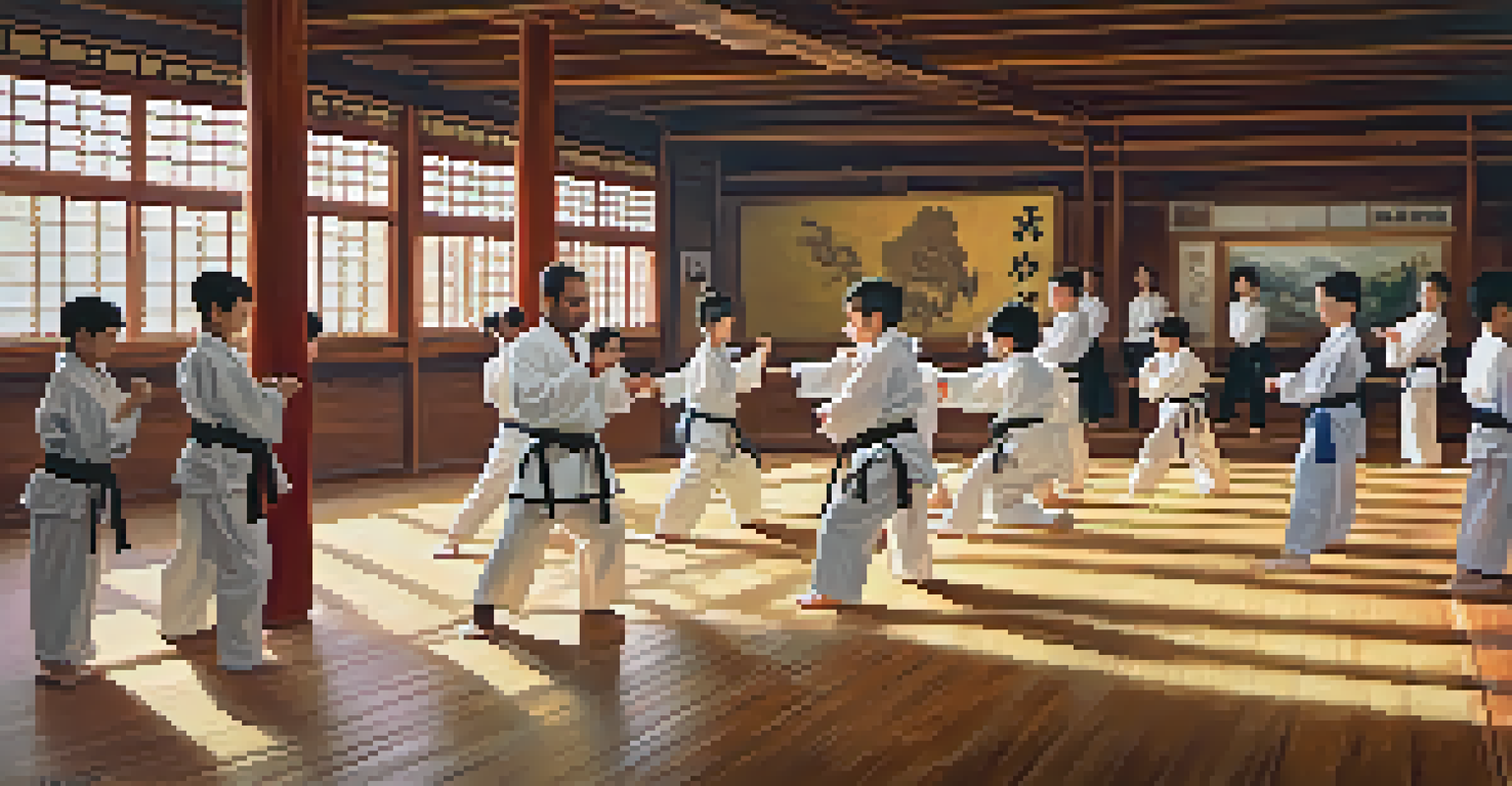The Benefits of Empathy in Martial Arts Training

Understanding Empathy and Its Role in Martial Arts
Empathy, the ability to understand and share the feelings of others, is often overlooked in martial arts training. While many focus on physical techniques and strength, cultivating empathy can significantly enhance a student's journey. It encourages practitioners to connect with their partners, fostering an environment of trust and respect.
Empathy is about finding echoes of another person in yourself.
In martial arts, empathy can manifest in various ways, such as being attuned to a partner's emotional state during training. This understanding leads to more effective communication, making it easier to adjust techniques to suit different skill levels. As a result, both partners can grow, learning from each other in a supportive atmosphere.
Moreover, empathic training can contribute to a more harmonious dojo culture. When students feel understood and valued, they are more likely to engage openly, share experiences, and collaborate. This sense of community not only improves individual performance but also strengthens the bonds among practitioners.
Building Stronger Relationships Through Empathy
Martial arts training is often a shared experience, and empathy plays a crucial role in building strong relationships among practitioners. When students approach each other with empathy, they create a supportive network that encourages growth and development. This camaraderie can make training more enjoyable and fulfilling.

For instance, an empathic instructor can sense when a student is struggling, both physically and emotionally. By providing encouragement and understanding, the instructor fosters a safe space for the student to express their challenges. This approach leads to stronger mentor-student relationships, ultimately benefiting the entire class.
Empathy Enhances Training Experience
Cultivating empathy in martial arts fosters trust and communication, leading to a more supportive and effective training environment.
Additionally, empathy helps in conflict resolution within the dojo. When disagreements arise, an empathetic perspective allows individuals to understand differing viewpoints, paving the way for constructive dialogue. This skill is invaluable, not just in training but in life outside the dojo as well.
Enhancing Communication Skills with Empathy
Effective communication is a cornerstone of martial arts training, and empathy enhances this skill significantly. When practitioners are attuned to one another's feelings, their verbal and non-verbal cues become clearer. This heightened awareness leads to better collaboration and improved training outcomes.
The greatest gift of human beings is that we have the power of empathy.
For example, during sparring sessions, an empathic fighter can gauge their opponent's level of comfort and adjust their intensity accordingly. This not only prevents injuries but also allows both participants to engage more fully in the experience. The result is a more productive and enjoyable training session for everyone involved.
Furthermore, empathetic communication extends beyond the physical aspects of training. It encourages open discussions about techniques and strategies, enabling students to share insights and learn from one another. This collaborative approach fosters a deeper understanding of martial arts principles and encourages continuous growth.
Empathy as a Tool for Personal Growth
Martial arts training is not just about physical techniques; it’s also a journey of personal growth. Empathy serves as a powerful tool in this process, helping students gain a deeper understanding of themselves and others. By practicing empathy, individuals can reflect on their emotions and reactions during training.
For instance, when students encounter challenges, empathy allows them to process these experiences constructively. Instead of feeling defeated, they can learn to view setbacks as opportunities for growth. This mindset shift is crucial for developing resilience, which is a key component of martial arts.
Stronger Relationships Through Empathy
Empathy builds strong bonds among practitioners, creating a collaborative community that encourages growth and development.
Moreover, as students cultivate empathy, they often find themselves becoming more compassionate individuals outside the dojo. This transformation can lead to improved relationships in personal and professional life, creating a positive ripple effect that extends beyond martial arts.
Fostering a Positive Learning Environment
A positive learning environment is essential for effective martial arts training, and empathy plays a pivotal role in creating this atmosphere. When practitioners approach each other with kindness and understanding, it fosters a sense of belonging and safety. This, in turn, encourages students to take risks and push their limits.
For example, when students feel that their emotions are validated, they are more likely to engage actively in class. This engagement enhances their learning experience, leading to greater retention of techniques and concepts. A supportive environment also reduces anxiety, allowing students to focus on their training rather than fear of judgment.
Ultimately, a positive dojo culture nurtured by empathy not only benefits individual students but also enhances the overall dynamics of the group. When everyone feels valued and respected, the entire class thrives, leading to improved performance and satisfaction among practitioners.
The Impact of Empathy on Conflict Resolution
Conflict is an inevitable part of any group dynamic, including martial arts training. However, empathy can be a powerful tool for resolving these conflicts effectively. By fostering understanding and compassion, practitioners can approach disagreements with a mindset focused on collaboration rather than confrontation.
For instance, if two students have differing opinions on a technique, an empathetic discussion can help them explore each other's perspectives. This dialogue not only resolves the immediate conflict but also promotes mutual respect and understanding. Over time, this practice can lead to a more cohesive and harmonious training environment.
Empathy's Role in Conflict Resolution
Practicing empathy helps resolve conflicts within the dojo, promoting understanding and respect among students.
Furthermore, conflict resolution skills learned in the dojo can translate to everyday life. By applying the lessons of empathy in various situations, practitioners can navigate challenges with greater ease, strengthening their relationships both inside and outside the martial arts community.
Long-Term Benefits of Empathy in Martial Arts
The long-term benefits of cultivating empathy in martial arts training extend far beyond the dojo. As students develop their empathic skills, they often experience personal transformations that positively impact their lives. These changes can lead to enhanced emotional intelligence, better relationships, and increased resilience.
For example, individuals who practice empathy regularly are more adept at handling stress and navigating life’s challenges. They can approach situations with a balanced perspective, allowing them to respond thoughtfully rather than react impulsively. This emotional maturity is invaluable, especially in high-pressure scenarios.

Additionally, the connections formed through empathic training often last a lifetime. The friendships and networks created in the dojo can provide ongoing support and encouragement, enriching practitioners' lives long after they leave the mat. In this way, empathy in martial arts training creates a lasting legacy of compassion and understanding.